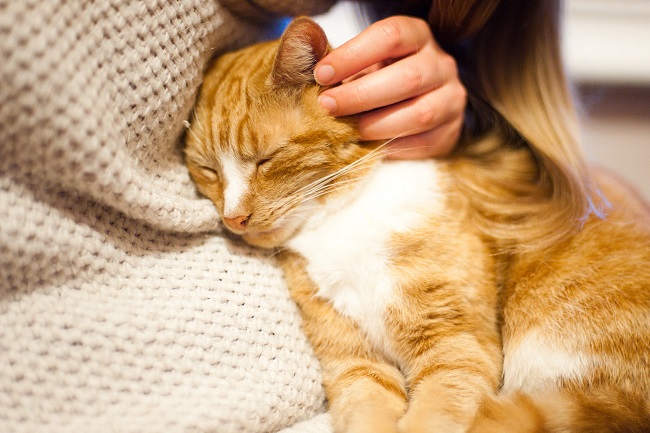Cats are known for their independent streak, but they can also exhibit periods of increased affection. If your male cat is suddenly being extra loving, it could leave you wondering, “Why is my male cat suddenly so affectionate?”
Several reasons could explain this change. Let’s delve into understanding your feline friend’s behavior a bit better.

Why is My Male Cat Suddenly So Affectionate?
Here are some of the reasons why your male cat is suddenly so affectionate:
Read Also:
Change in Environment
Cats can become extra affectionate when there’s a change in their environment, such as a move to a new home or the addition of a new pet or human in the household. In such cases, your cat might seek comfort and reassurance from you.
Seeking Attention
Your male cat might simply be seeking more attention. This could be due to changes in your routine that leave him feeling neglected, or he might have learned that being affectionate earns him more treats or playtime.
Ageing and Health Concerns
As cats age, they can become more affectionate due to a decreased energy level. However, a sudden increase in affection, especially in older cats, might indicate a health concern. Cats are experts at hiding discomfort, and they might seek comfort if they’re not feeling well.
Feline Estrus Cycle
Unneutered male cats can exhibit increased affection due to the presence of a female cat in heat nearby. If your male cat is suddenly overly affectionate, check if there are any female cats in the vicinity that could be in heat.
Breed Disposition
Some cat breeds are more affectionate by nature. If your male cat is of a breed known for its loving disposition, he might be growing into his breed traits.
Weather Changes
Cats can become more affectionate during cold weather. They are seeking warmth and companionship during these colder months.
Stress or Anxiety
If your cat is experiencing stress or anxiety, he may seek comfort by becoming more affectionate with you. Try to identify any potential stressors in his environment.
Decoding Feline Body Language
Understanding your cat’s body language can provide crucial insights into why they might be acting more affectionate.
Purring
Purring is a common sign of contentment in cats, but it can also signify discomfort or stress. If your male cat has been purring more often while seeking physical contact, it might be a sign of increased affection, or it could indicate that he’s not feeling well and is seeking comfort.
Kneading
Kneading, the act of your cat pushing their paws in and out against a soft surface, is a sign of contentment and relaxation. Cats often do this when they’re feeling particularly affectionate.
Tail Quivers
A cat quivering its tail while around you often indicates excitement and affection. This is a positive sign that your cat is happy to see you.
Slow Blinking
Slow blinking by your cat is often referred to as ‘cat kisses.’ It’s a sign of trust and affection from your feline friend.
Behavioural Changes to Watch Out For
While it’s wonderful that your cat is showing you more love, it’s essential to watch out for any other behavioral changes.
Changes in Eating or Drinking Habits
A drastic change in your cat’s eating or drinking habits could signal health problems. If these changes accompany increased affection, a visit to the vet is recommended.
Litter Box Issues
Increased affection accompanied by inappropriate elimination or changes in litter box habits could be a cause for concern. This could be a sign of health issues like urinary tract infections or other medical conditions.
Vocalization Changes
If your cat is being more affectionate and also meowing more than usual or making unusual sounds, it could indicate distress or discomfort.
Read Also:
Conclusion
A sudden change in your cat’s behavior should never be ignored. While it might simply be a case of your feline friend seeking more attention or responding to changes in his environment, it could also indicate underlying health issues.
If your male cat is suddenly more affectionate and you’re unable to identify the cause, it’s a good idea to consult with a veterinarian to rule out any health concerns.
Understanding your cat’s behavior and responding to it appropriately will ensure a long, happy, and healthy life for your furry friend.
























